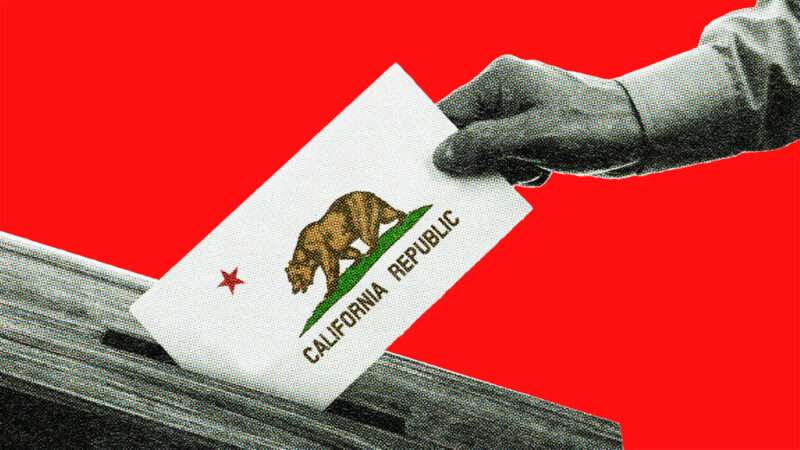
It's primary election day in seven states around the country as voters make preliminary choices for candidates who will run for office in November. But voters in two of California's largest cities will face decisions regarding their local law enforcement entities that could spell trouble for the criminal justice reform movement.
In Los Angeles County, Sheriff Alex Villanueva is running for reelection in a crowded field. The Los Angeles Sheriff's Department (LASD) has a budget of nearly $3.5 billion and over 17,000 employees—the largest sheriff's office in the country. Villanueva won office in 2018's "blue wave" election cycle, stressing his Latino heritage, his support for California's "sanctuary state" law which discouraged cooperation with Immigrations and Customs Enforcement (ICE), and his desire to root out cronyism in a famously corrupt department.
Once in office, however, Villanueva backtracked on his anti-ICE pledge, and he rehired a deputy who had been fired over allegations of domestic abuse and stalking. Earlier this year, when footage leaked of a deputy with his knee on a prison inmate's head for more than three minutes, Villanueva announced he would be launching a criminal investigation—not into the incident but into the leak.
Under Villanueva's term, the LASD has been hostile to oversight: The department has seemingly ignored requests for bodycam footage and misconduct records filed in accordance with a 2019 California public records law. Villanueva has ignored subpoenas to testify about gangs of deputies within the department (a problem which, to be fair, goes back decades).
Despite campaigning on criminal justice reform, Villanueva has run his office more akin to a law-and-order conservative, even charging that his opponents "worship at the altar of wokeism." Cynthia Hart of the Culver City Democratic Club, which endorsed Villanueva in 2018, told the Los Angeles Times that Villanueva "really broke our hearts… I thought he was a reformer."
Unfortunately for reform supporters, Villanueva is favored to win: He is the only candidate, from a total of nine, with any name recognition. Los Angeles Democrats failed to coalesce around a single candidate to challenge Villanueva. And since the sheriff's race is nonpartisan, with no party affiliations, many voters will have only names to go by.
If any candidate receives a majority of votes cast today, that person will win the race outright; if not, the top two candidates will face off in November.
Meanwhile in San Francisco, voters will decide whether to recall District Attorney Chesa Boudin. Supporters of the recall effort charge that Boudin "has the wrong priorities," and that crime is up since he entered office in January 2020. Boudin retorts that the recall is "a Republican-led operation," though polling earlier this spring showed nearly two-thirds of Democrats support his removal.
Boudin's leftist credentials extend back to birth: His biological parents, David Gilbert and Kathy Boudin, were members of the violent anti-war activist group, the Weather Underground. When both were arrested after a botched armored truck robbery killed three people, Boudin was raised nearly from infancy by two fellow Weather Underground members: Bill Ayers, the unapologetic erstwhile bomber, and Bernardine Dohrn. In adulthood, he worked as a translator for Hugo Chavez, the autocratic president of Venezuela, later defending him against accusations of authoritarianism.
In 2019, Boudin ran for office on a progressive platform of criminal justice reform. He pledged to "end mass incarceration," to "eliminate cash bail," and not to prosecute "quality-of-life crimes," such as consensual sex work, "public camping," and "public urination." The San Francisco Libertarian Party endorsed Boudin on the strength of his promises.
Under Boudin, rates of homicide, gun violence, and car theft increased after falling in previous years. Last fall, San Francisco was one of a handful of U.S. cities to experience a spate of smash-and-grab robberies. Of course, crime across the country has risen since the beginning of the COVID-19 pandemic, and it is entirely possible that San Francisco's rates are not out of the ordinary. A San Francisco Chronicle investigation comparing 2022 numbers to the previous four years found that "reported crime data does not clearly show a trend toward worsening public safety."
But Boudin still faces recall and for perhaps a completely mundane reason: He may simply be bad at the job.
In the first two years of his tenure, nearly half of the prosecutors working under him left. Some, including fellow progressive prosecutors, have since publicly criticized Boudin's management of the office. Despite saying that his "top priority" was "supporting victims and survivors," advocates in the D.A.'s Victim Services Division, which keeps victims apprised of the status of their cases and helps enable them to speak at sentencing hearings, complain that their office is being deprioritized.
Villanueva and Boudin may have little in common, but they each spell trouble for criminal justice reform in California's cities. Boudin supporters worry that a successful recall effort could undermine the cause and even imperil other reform-minded prosecutors across the country. At the same time, a successful Villanueva reelection could send the message that punitively regressive policing is good politics. Either way spells more aggressive prosecution, which poses a threat to innocent and low-income defendants.
The post Bad Candidates Threaten Criminal Justice Reform in California appeared first on Reason.com.







